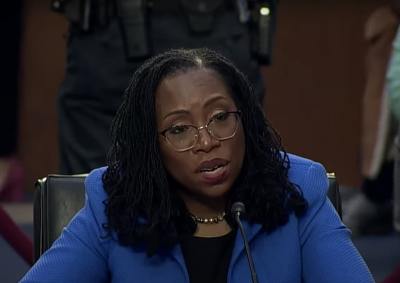 Even as GOP presidential candidate front runner Herman Cain sidesteps and dodges the barrage of questions regarding sexual harassment allegations stemming from his days at the helm of the National Restaurant Association in the 1990s, images of the nightmare that was the the Clarence Thomas Supreme Court hearing confirmation float back to the surface and into the national consciousness.
Even as GOP presidential candidate front runner Herman Cain sidesteps and dodges the barrage of questions regarding sexual harassment allegations stemming from his days at the helm of the National Restaurant Association in the 1990s, images of the nightmare that was the the Clarence Thomas Supreme Court hearing confirmation float back to the surface and into the national consciousness.
One of the women who GOP front runner Herman Cain said made a false accusation of sexual harassment against him has decided not to go public saying she does not want to become another Anita Hill and let the controversy take over her life. Little chance of that happening, pretty much all Hill and Cain’s accuser have in common is that they are both African American women, which may compound the issue, i.e., more black on black crime to feed mainstream stereotypes. And while studies indicate that if the harasser is a man of color, the victim is more likely to be a woman of color. But since workplace harassment is a power dynamic, African American women are more likely targets because they are the least powerful participants in the workplace. Unlike white women they are not privileged by race and unlike white men they are not privileged by gender.
Hill’s accusations of inappropriate sexual statements by now Supreme Court Clarence Thomas surfaced in 1991 as Congress was preparing to confirm his nomination to the Supreme Court. The brave, brilliant, and unflinching woman who testified before a committee of all white men in the Senate confirmation hearings for Clarence Thomas, not only put the issue of sexual harassment on the spotlight and changed the law, she galvanized more women to run for office and more of their female constituents to vote for them.
Furthermore, prior to Hill’s taking up the mantle for women’s rights in the work place sexual harassment was characterized as a ‘victimless crime,’ a characterization that could not be further from the truth. Women report feeling of depression, anxiety, diminished self-esteem and job confidence and being constantly and acutely plagued with concerns about whether they are in a position because of their job qualifications or the possibility they may respond to sexual overtures.















